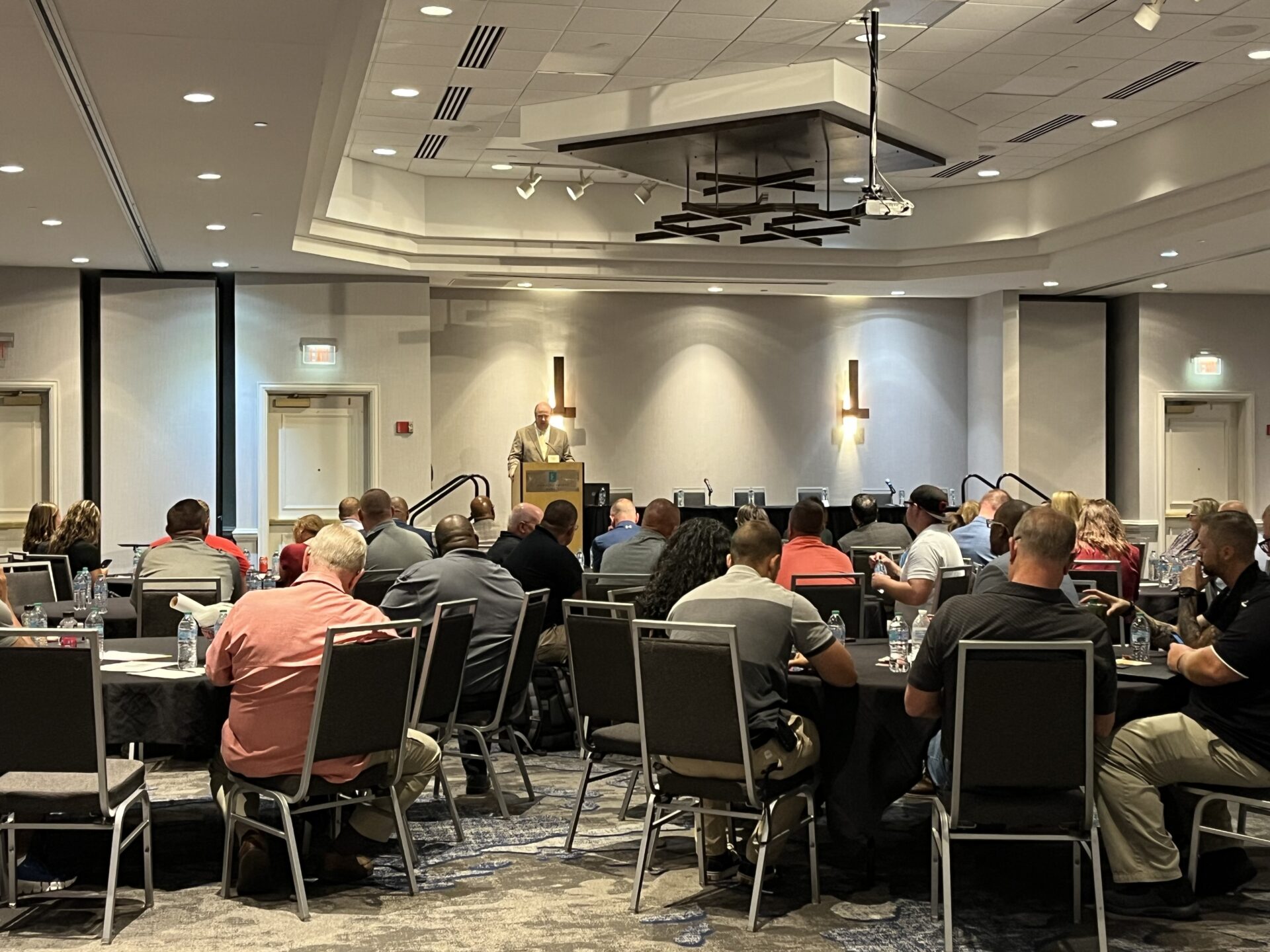This week, First Choice Services, a Charleston-based non-profit, is hosting a summit to discuss crisis care and mental health in West Virginia.
First Choice Services operates several helplines including the 988 Suicide and Crisis Line, the tobacco quitline, 1-800-gambler and more.
The nonprofit began its second annual West Virginia 988 and Crisis Intervention Team, or CIT, Summit in Charleston on Monday.
Sheila Moran is the Director of Marketing and Communication for First Choice Services.
“This is the West Virginia Crisis Intervention Team conference,” Moran said. “We have over 200 people here from all over the state, including first responders, law enforcement, behavioral health, decision-makers, and policymakers to learn a little bit more about the CIT program and how we can expand it statewide.”
Attendees include federal, state, and local officials, law enforcement, firefighters, emergency medical service providers, advocates, mental health providers, substance use disorder professionals, criminal justice professionals and people who’ve experienced substance use, legal or mental health challenges, otherwise known as people with lived experience.
According to the American Psychological Association, nationally, at least 20 percent of police calls involve substance use or mental health crises and 65 percent of jail inmates report mental health concerns.
A CIT program can help officers respond with a community-based approach to improve the outcomes of these encounters. According to the National Alliance on Mental Illness, community-based approaches create connections between law enforcement, mental health providers, hospital emergency services and individuals with mental illness and their families.
Attendees at Charleston’s Summit will spend the next three days learning from CIT-certified law enforcement officers and behavioral health professionals about improved communication methods, identifying mental health resources for those in crisis and ensuring officer and community safety.
Moran said the West Virginia Crisis Intervention Team/988 Summit is a joint conference because the lifeline is such a vital tool in West Virginia’s mental health response.
“988 is a lifeline for anyone who’s in crisis or feeling suicidal,” Moran said. “We are a resource, not just for people who are in crisis, but also for first responders, law enforcement, always available 24/7 for anyone who needs to talk.”
The keynote speaker of the summit is William S. Thompson, U.S. Attorney for the Southern District of West Virginia. He touted the 988 suicide and crisis line as an advancement in fighting the mental health crisis.
“The fact that we’re coming together for training like this, the 988 number, that is incredible, like a resource that’s underutilized in this state and needs to be utilized more,” Thompson said. “But the fact that somebody can dial three numbers and actually be connected for crisis help, that’s incredible.”
Moran said First Choice Services answered the National Suicide Lifeline for several years before the 988 program.
“When 988 came into being, we got funding for those things,” Moran said. “So it made a really big difference. And so now we have about 100 people at our office who work for either the West Virginia 988 program, or also the backup program. There are over 200 backup centers through the country that answer that line, so that when you call, it never goes to voicemail or busy.”
Moran said since the 988 program went into effect in West Virginia in 2022, calls have more than doubled.
“People sometimes hear that and think it’s bad news,” Moran said. “But indeed, it’s good because it means that people are reaching out for help. There are a lot of reasons for that. Obviously, the fact that 988 is a super easy phone number to remember is part of it.”
The summit will not only address how first responders react physically in a crisis but also mentally by addressing the mental health crisis among first responders.
According to the Substance Abuse and Mental Health Services Administration, law enforcement and EMS have significantly elevated levels of depression and post-traumatic stress disorder and are at higher risk for suicide.
Summit attendees will hear about evidence-based strategies to reduce these risks.
Appalachia Health News is a project of West Virginia Public Broadcasting with support from Marshall Health.
